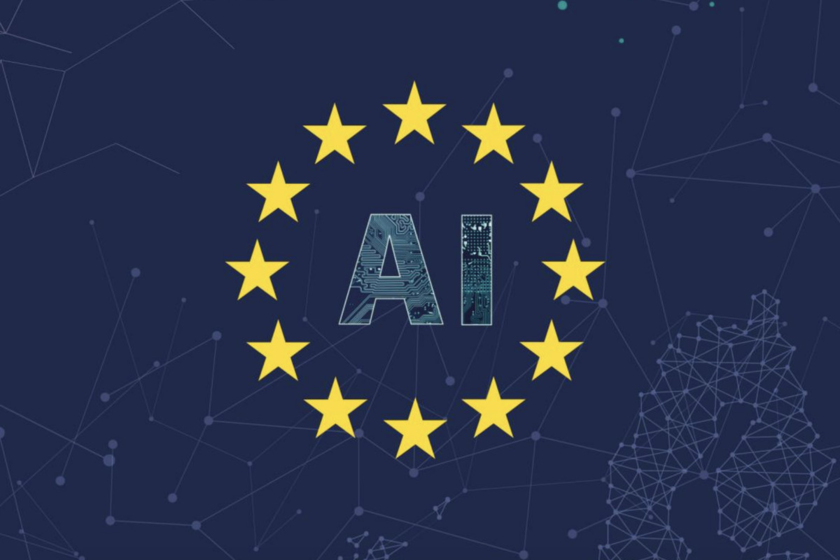Artificial intelligence, here are the EU rules in the pipeline

On April 21, the vice president of the EU Commission, Vestager, will present the regulatory package designed to regulate the artificial intelligence sector. All the details
The EU's third way on artificial intelligence is ready. After privacy, Brussels is ready to regulate the AI sector.
The use of facial recognition for mass surveillance, or algorithms that manipulate human behavior, will be banned in the European Union.
Not only. Companies developing AI could face fines of up to 4% of global revenue if they don't comply with the new rules.
The rules are part of the regulatory package that the European Commission will present on April 21st according to a draft of the proposal viewed by some media such as Bloomberg and Politico .
The new legislation comes as the EU seeks to catch up with the US and China on the introduction of artificial intelligence and other advanced technologies.
However, the new requirements could prevent tech companies in the region from competing with foreign competitors.
All the details.
THE GOAL OF THE EU
As artificial intelligence has begun to penetrate every part of society – from voice assistants to hiring, insurance and law enforcement decisions – the EU wants to ensure that technology used in Europe is transparent, has human oversight. and meet European standards to ensure privacy.
With the new rules, Brussels is therefore preparing to completely ban certain uses of "high-risk" artificial intelligence systems and would limit their entry into the block if they do not respect its standards.
AI SYSTEMS FORBIDDEN
Artificial intelligence systems used to manipulate human behavior, exploit information on individuals or groups of individuals, or for indiscriminate surveillance would all be banned in the EU.
Also including those used for "the social score", or the social credit system designed by China to induce citizens to adopt better behavior.
APPLICATIONS CONSIDERED "HIGH RISK"
In addition to the Forbidden Ai systems, the proposed rules also include applications considered "high risk". The latter are therefore subject to an additional check.
These include many technologies currently in use in Europe today, such as algorithms used to scan CVs, carry out credit assessments, distribute social security benefits or asylum and visa applications, or help judges make decisions.
SUBJECT TO GREATER SUPERVISION
For AI considered to be high-risk, Member States should apply much greater oversight, including the need to appoint assessment bodies to test, certify and inspect these systems.
Some companies will be authorized to carry out their own assessments, while others will be subject to third party audits.
The rules would apply equally to companies based in the EU or abroad.
THE PROVIDED SANCTIONS
Any company that develops banned services or fails to provide correct information about them could face fines of up to 4% of their global revenue. Sanctions similar to those provided for violations of the GDPR.
NATIONAL AUTHORITIES TO ISSUE CERTIFICATIONS
Governments will therefore have to set up national authorities to assess them and issue certificates of compliance which will have a maximum duration of 5 years.
A EUROPEAN COMMITTEE FOR ARTIFICIAL INTELLIGENCE
The European Commission also plans to set up an EU Committee for artificial intelligence. It will be composed of a representative from each member country, a representative of the Commission, as well as the European Data Protection Supervisor.
EXCLUDING ARTIFICIAL INTELLIGENCE SYSTEMS FOR MILITARY PURPOSES
But the rules don't apply to artificial intelligence systems used solely for military purposes, according to the document.
As well as the systems used by law enforcement for public safety.
ON FACIAL RECOGNITION IN PUBLIC PLACES
For example, remote biometric identification systems – such as facial recognition – used in public places would require special authorization from the authorities.
According to Politico , the exception is designed to appease countries like France, which is eager to integrate artificial intelligence into its security apparatus but is opposed by privacy hawks and digital rights activists who have lobbied for them uses are prohibited outright.
ACTIVISTS 'CONCERNS FOR DIGITAL RIGHTS
"Giving national authorities discretion to decide which use cases to allow or disallow risks creating the loopholes and gray areas we already have under current legislation and which have led to widespread damage and abuse." This is the opinion of Ella Jakubowska from the EDR i digital rights group .
THE NEXT STEPS
The draft document is still subject to change.
In fact, the regulatory package will have to obtain the green light from the governments and the EU Parliament before entering into force.
THE CRITICISM
Finally, without forgetting the pressure of the lobbies. In fact, the industry is likely to challenge the strict EU rules, which they believe would make the European market less attractive.
An orientation that critics consider dangerous, because in addition to making the Old Continent less attractive for businesses, it could also create friction with the US. As he had already announced in an interview with Politico , Eric Schmidt, who chairs the US National Security Commission on Artificial Intelligence (Nscai). Schimdt said Europe "just isn't big enough on the platform side" to compete on artificial intelligence. "Europe will have to collaborate with the United States on these key platforms".
The United States, which is much more concerned about opposing China and whose companies could be subject to regulation, would probably have preferred a more flexible law according to Politico .
This is a machine translation from Italian language of a post published on Start Magazine at the URL https://www.startmag.it/innovazione/intelligenza-artificiale-ecco-le-regole-ue-in-cantiere/ on Fri, 16 Apr 2021 11:33:47 +0000.
